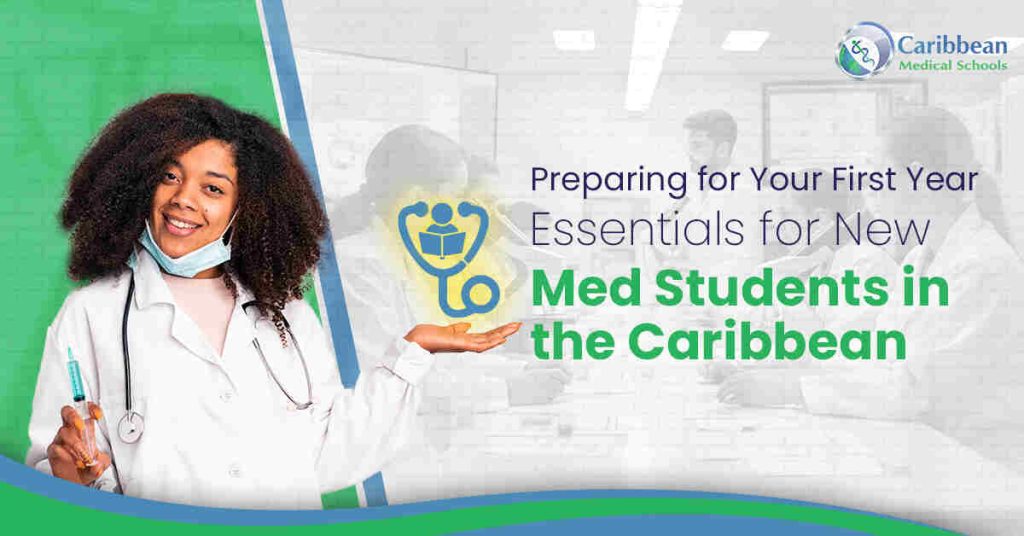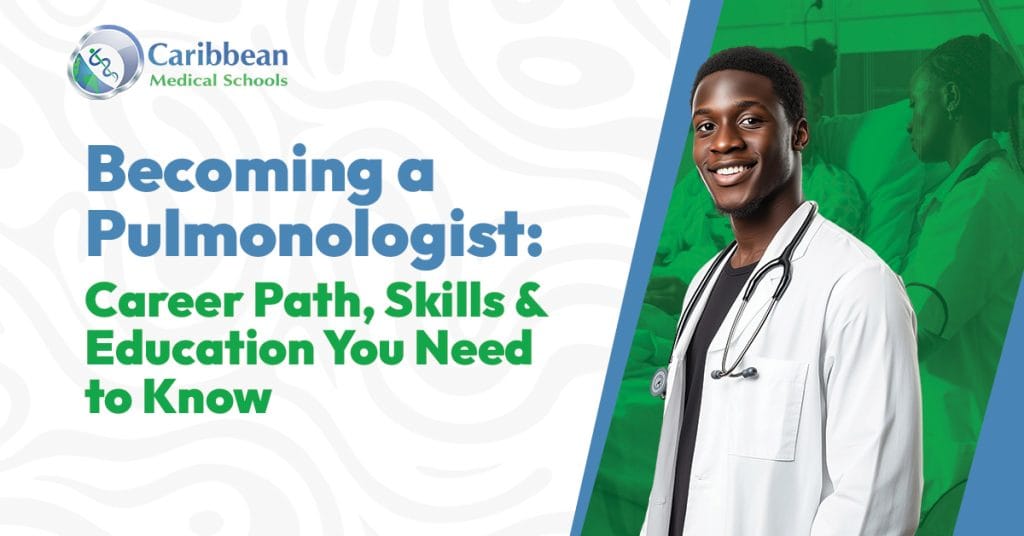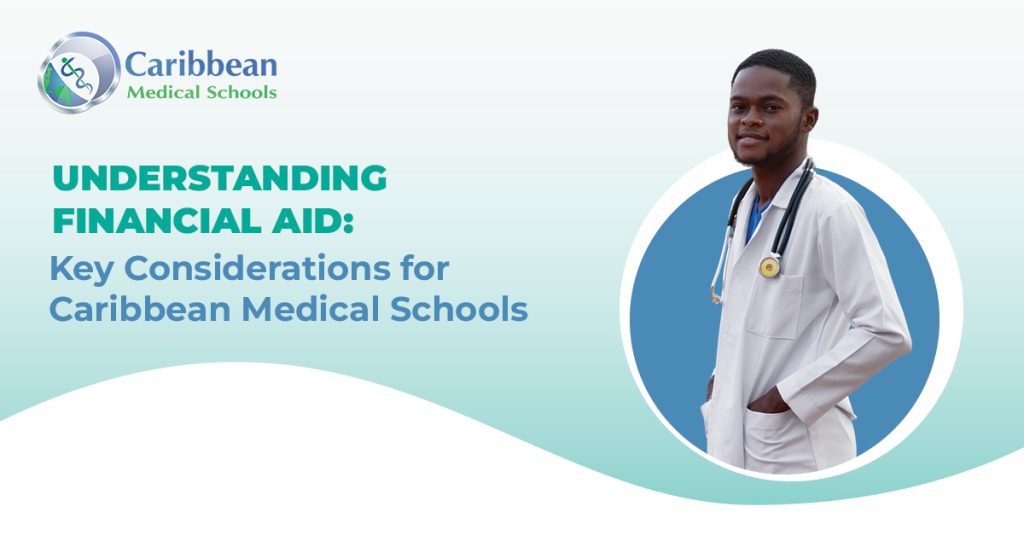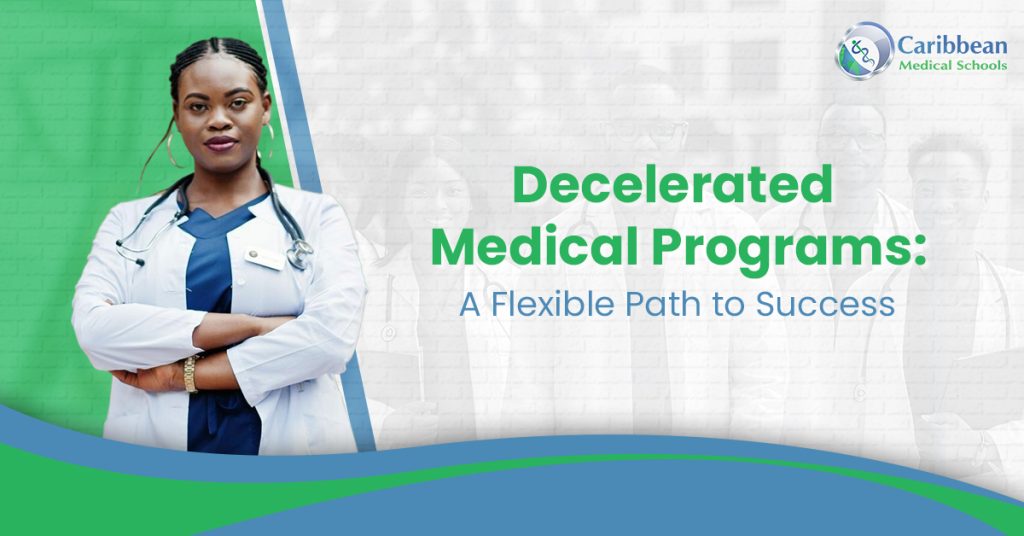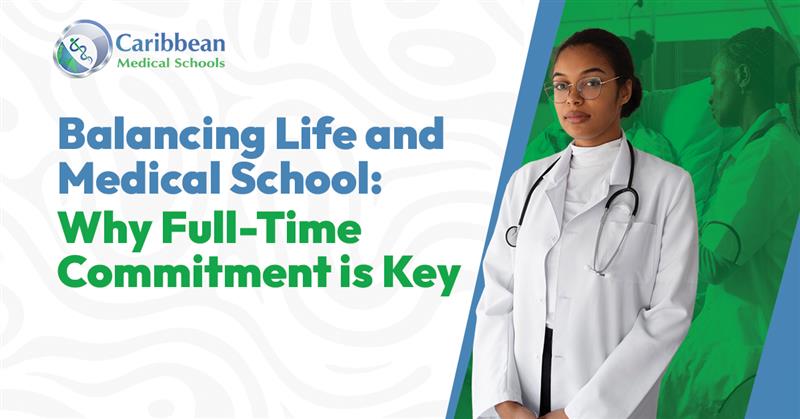Blog Summary
Starting your first year at a Caribbean medical school is an exciting yet challenging experience. Effective preparation is crucial for a smooth transition, from researching your school and packing the right essentials to mastering time management and financial planning. Staying healthy, building a support system, and immersing yourself in the local culture will help you balance the intense academic workload. This blog provides actionable guidance on how to thrive in your new environment and succeed in one of the best Caribbean medical schools. By being well-prepared, you can make the most of your medical school journey.
Table of Contents
Introduction
Starting your journey at Caribbean medical schools is both exciting and challenging. As a new medical student, you’re embarking on a path that requires determination, organization, and a bit of preparation. But don’t worry — with the right essentials, you can navigate this new world with confidence. Whether you’re heading to one of the best Caribbean medical schools, or looking into accredited Caribbean medical schools, preparing for your first year is crucial. Let’s explore what you need to know to set yourself up for success.
Understanding the Caribbean Medical Experience
Medical school is intense, no matter where you are, but Caribbean medical schools offer a unique environment. While you’re receiving a world-class education, you’re also studying in an idyllic setting with tropical beaches, warm climates, and vibrant cultures. However, don’t be fooled by the beautiful surroundings — accredited Caribbean medical schools demand the same rigour and dedication as any other prestigious institution.
Why Preparation is Key
Think of preparing for medical school like preparing for a marathon. You wouldn’t just show up on race day without having trained, right? The same goes for starting at one of the top Caribbean medical schools
best medical schools. With so many unknowns, getting organized early will help you avoid unnecessary stress. By understanding what lies ahead and planning accordingly, you’ll set yourself up for success from day one.
Researching Your School and Surroundings
Before heading to your new campus, take the time to research not just your medical school but also the surrounding area. Each Caribbean Island offers a distinct way of life and understanding what to expect can ease your transition. Find out about housing options, local transportation, nearby grocery stores, and recreational activities.
Look into your school’s curriculum, faculty, and accreditation status — ensuring you’re attending one of the best medical schools in the region. Getting familiar with the academic environment will help you feel more confident and prepared when classes begin.
Packing Essentials for Caribbean Life
The warm, tropical climate of the Caribbean means packing for your first year is different from traditional school packing lists. Here are some must-haves:
- Medical gear: Stethoscope, scrubs, and necessary textbooks.
- Comfortable clothing: Lightweight and breathable fabrics for hot weather.
- Mosquito repellent: Essential for preventing bites, especially in tropical climates.
- Basic first-aid kit: A helpful addition for managing minor health issues.
Don’t forget to bring some items to make your dorm feel like home, such as photographs, bedding, or anything that brings comfort.
Financial Planning and Budgeting
Living in the Caribbean might seem like a dream, but managing your finances is critical to making that dream sustainable. Tuition fees, housing costs, groceries, and extracurricular activities add up quickly. Consider the following:
- Tuition and fees: Research the exact cost of your program and any additional fees.
- Housing and utilities: Whether on-campus or off, factor in rent, electricity, and internet costs.
- Groceries and food: opt for local produce and cook at home to save money.
By handling your finances prudently, you can enjoy the benefits of studying at Caribbean medical schools without breaking the bank.
Mastering Time Management
Time management is one of the most crucial skills for any medical student. With a heavy workload of classes, labs, and self-study, balancing everything requires discipline. Use digital planners or apps to schedule study sessions, breaks, and personal time. Divide tasks into manageable parts and establish deadlines.
Health and Wellness
In the Caribbean, health and fitness are integral to daily life, with recent statistics highlighting their importance. Approximately 60% of Caribbean adults engage in regular physical activity, such as walking, swimming, or playing sports, due to the region’s favourable climate and lifestyle. Dietary habits also play a significant role, with 50% of the population incorporating locally grown fruits and vegetables into their diets. Despite these positive trends, a 2024 report indicates that 30% of Caribbean adults still face challenges related to obesity and chronic diseases. Efforts to promote fitness and healthy eating continue to be a priority in addressing these health concerns.
Study Strategies for Success
Every student learns differently, but there are some universal strategies to help you succeed in your first year:
- Active learning: Use flashcards, practice tests, and group discussions to reinforce knowledge.
- Take breaks: Short, frequent breaks help your brain process information more effectively.
- Teach others: Explaining complex topics to classmates is a great way to deepen your understanding.
Building a Support System
No one gets through medical school alone. Developing a strong support system with fellow students, faculty, and even locals will be invaluable during stressful times. Get involved in student groups, reach out to professors for guidance, and don’t hesitate to ask for help when you need it. Your peers will often be going through the same challenges, making them the perfect support network.
Exploring Local Culture and Community
One of the unique aspects of studying at best Caribbean medical schools is the chance to immerse yourself in local culture. Take time to explore the island, meet the locals, and learn about their traditions. From vibrant music to delicious cuisine, the Caribbean offers rich cultural experiences that will add to your overall medical school journey.
Staying Motivated Throughout the Year
The first year of medical school can feel overwhelming at times, but staying motivated is key to your success. Establish small, attainable goals and celebrate each time you achieve them. Keep your end goal of becoming a doctor in mind, and don’t forget to reward yourself for your hard work. Surround yourself with uplifting influences and keep reminding yourself why you chose this path.
Overcoming Challenges
Challenges are inevitable, but how you respond to them will define your experience. Whether it’s homesickness, academic pressure, or personal issues, the key is to remain adaptable. Remember, challenges are an opportunity for growth. Seek help when needed and remember that perseverance is a critical part of becoming a successful doctor.
Conclusion
Your first year in Caribbean medical schools is a period of significant growth and learning, both intellectually and personally. By being prepared, managing your time wisely, and maintaining your health, you’ll set the foundation for success. Embrace the unique opportunities that studying in the Caribbean provides, from the education to the culture, and build a strong support system to guide you through the journey. With the right mindset and preparation, you’ll not only survive but thrive in this exciting chapter of your medical career.
FAQs
1. How can I stay organized during medical school?
Using planners, digital scheduling tools, and breaking tasks into manageable goals will help maintain organization.
2. How do I choose an accredited Caribbean medical school?
Look for schools recognized by bodies like CAAM-HP or ACCM, ensuring you can sit for international licensure exams like the USMLE.
3. How do I prepare financially for medical school in the Caribbean?
Create a budget covering tuition, housing, groceries, and personal expenses. Look into scholarships and student loans to manage costs.
4. What should I pack for my first year at a Caribbean medical school?
Pack essentials such as medical supplies, lightweight clothing, sun protection, and personal items to make your dorm feel like home.
5. How can I stay healthy while studying in the Caribbean?
Maintain a balanced diet, exercise regularly, get enough sleep, and explore outdoor activities to reduce stress.

